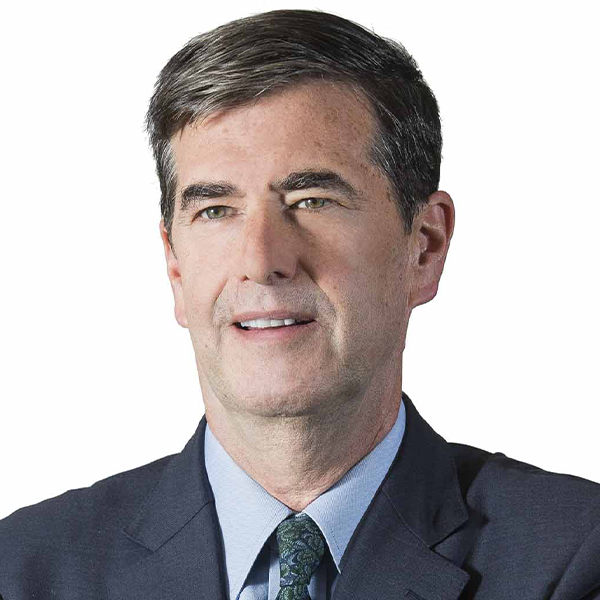Capital IdeasTM
Investment insights from Capital Group
Outlook
Overall, the outlook for equity markets remains cloudy given high inflation, rising interest rates and the war in Ukraine. However, the prevalence of old-economy, dividend-paying companies in Europe — exactly the type that are back in favor — could mean that European markets are poised for a period of relative outperformance.
The European economy is holding up remarkably well despite investor worries about a war-induced recession. While the manufacturing sector has been hurt by the war in Ukraine and fears that Russia may cut off natural gas supplies, the services sector has done much better, driven primarily by pent-up demand.
“There's still a reasonable degree of momentum in the European economy,” says economist Robert Lind. “That's a reflection of the reopening trends we saw at the start of the year as governments began easing pandemic-related restrictions.”
Services sector bolsters eurozone economy as manufacturing slows
.png)
Sources: Haver, S&P Global. As of April 2022. The Eurozone Purchasing Managers' Index (PMI) is a measure of business activity compared to the previous month, based on a survey of around 5,000 companies based in the euro area manufacturing and service sectors. PMI levels above 50 indicate growth and levels below 50 indicate contraction. In 2020, the Services PMI declined to 12.0 and the Manufacturing PMI declined to 18.1, but are not shown on the chart for scale.
The services sector — which includes finance, retail and tourism among others — accounts for the bulk of employment and economic output in the eurozone, Lind notes. If current trends persist, that means Europe could continue growing despite weakness in the manufacturing sector.
Lind expects GDP growth in the eurozone to come in around 2.5% to 3.0% this year. That would represent a strong expansion relative to the eurozone’s average GDP growth rate of roughly 1.0% over the past decade.
Solid economic growth coupled with high inflation means the European Central Bank has confirmed its intention to hike interest rates in July. That should provide some relief to the European banking sector, which has suffered under negative rates since 2014. The ECB’s key policy rate now stands at –0.50%. Just two hikes of 25 basis points would effectively end the era of negative policy rates in Europe — a major milestone.
Keep an eye on value stocks
A sustained shift toward value-oriented stocks could provide a boost to European markets, given the greater representation of such stocks in the major European indexes. Europe, and emerging markets for that matter, also have a much greater number of dividend-paying stocks compared to the U.S., as well as higher average dividend yields.
It’s too early to tell if value stocks will continue to outpace growth stocks for the full year. Although both categories are in negative territory, on a relative basis, value is the undisputed winner so far.
Value stocks are running well ahead of growth stocks this year
.png)
Sources: Capital Group, MSCI, Refinitive Datastream. Returns reflect cumulative total returns from December 31, 2021, through May 24, 2022.
“After many years of subpar results, we are starting to see a better showing from more value-driven investments,” says portfolio manager Steve Watson.
"In my view we are heading into an equity market that will be less obsessed with growth and more cognizant of value. Despite the challenges facing Europe, I believe there is real value appearing in European shares. As a contrarian, value-oriented investor, I like to think that will continue."
The primary source of uncertainty, of course, remains the war in Ukraine and the worry that it may spread into other European countries. While the outcome is unpredictable and the risk of escalation is ever-present, Europe’s unified response to Russia’s February 24 invasion has been encouraging, Watson says.
“Many of us were surprised at how quickly Europe rose to the challenge,” Watson explains. “Germany, for example, making a commitment to spend at least 2% of its GDP on defense — that was considered nearly impossible just a few months ago.”
Unprecedented sanctions imposed by the European Union and the United States have also made it clear that Russia’s aggression comes at a high cost.
“The world will recover from this crisis,” Watson reassures. “But how long will it take? That’s a tough call right now.”
Our latest insights
-
-
Long-Term Investing
-
Fixed Income
-
-
Economic Indicators
RELATED INSIGHTS
-
-
Fixed Income
-
Emerging Markets
Past results are not predictive of results in future periods. It is not possible to invest directly in an index, which is unmanaged. The value of investments and income from them can go down as well as up and you may lose some or all of your initial investment. This information is not intended to provide investment, tax or other advice, or to be a solicitation to buy or sell any securities.
Statements attributed to an individual represent the opinions of that individual as of the date published and do not necessarily reflect the opinions of Capital Group or its affiliates. All information is as at the date indicated unless otherwise stated. Some information may have been obtained from third parties, and as such the reliability of that information is not guaranteed.
Capital Group manages equity assets through three investment groups. These groups make investment and proxy voting decisions independently. Fixed income investment professionals provide fixed income research and investment management across the Capital organisation; however, for securities with equity characteristics, they act solely on behalf of one of the three equity investment groups.
 Robert Lind
Robert Lind
 Steve Watson
Steve Watson